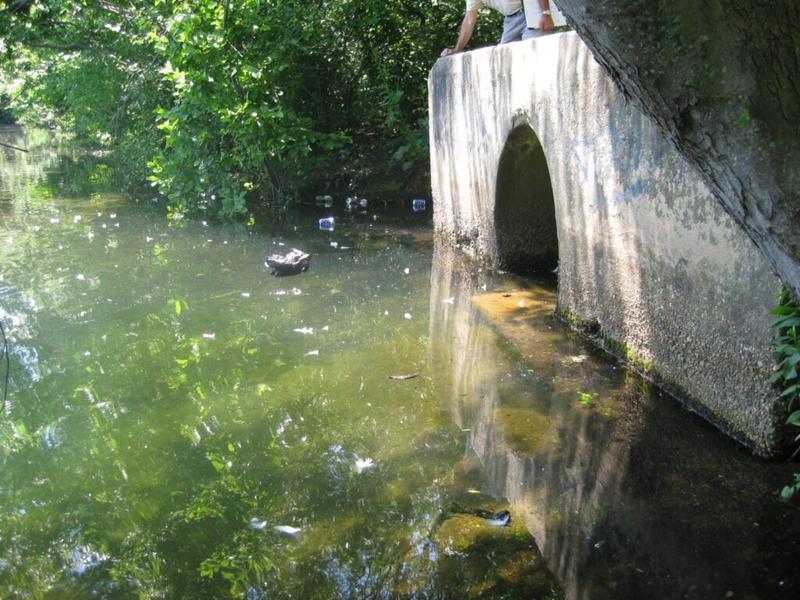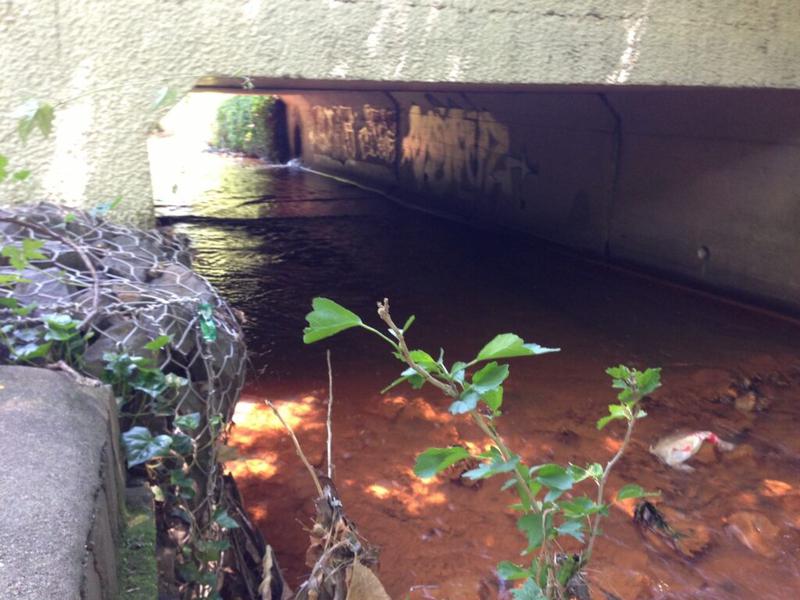
As the new year begins, it’s that time again for municipalities to prepare the NYSDEC Municipal Separate Storm Sewer System (MS4) annual reports to meet the State’s June 1st deadline! This reporting requirement applies to municipalities covered by NYSDEC’s General Permit for Stormwater Discharges from Municipal Separate Storm Sewer Systems (GP-0-15-003). Municipalities that are subject to the Multi Sector General Permit for Stormwater Discharges Associated with Industrial Activity (GP-0-17-004) must comply with different reporting requirements.
A MS4 IS A COLLECTION OF STORMWATER DRAINAGE SYSTEMS THAT DISCHARGES TO SURFACE WATERS AND IS:
- Owned by a state, city, town, village or other public entity,
- Designed or used to collect or convey stormwater, and
- Not part of a sewage treatment plant or publicly owned treatment works (POTW).
MS4s are different from combined sewer systems, in that MS4s use separate pipes for sanitary sewage and stormwater flow. MS4 that are located within the Census Bureau defined “urbanized area” are managed under EPA’s Phase II Stormwater Rule. The Phase II Rule applies to MS4s and construction sites wherein land disturbance is caused for sites spanning from 1 to 5 acres.

MS4s are not designed to properly handle polluted water. In this context, the MS4 program requires municipalities to develop and implement a stormwater management program in order to reduce the amount of pollutants carried by stormwater during storm events. As stormwater moves across developed areas, it can pick up garbage, debris, fertilizers, leaves and even other pollutants from parking lots, yards, streets, roofs and other impermeable sources. Polluted stormwater runoff is commonly transported through drainage systems and can often result in discharges into local water bodies. In addition, the MS4 program strives to eliminate illicit discharges (non-permitted discharges such as waste oil, cement truck washdown water, etc.) to the stormwater system. Many state manuals offer information on best management practices, maintenance schedules, and various checklists that can be used when performing maintenance and inspections.
THE ANNUAL MS4 REPORTING PERIOD ENDS ON MARCH 9TH EACH YEAR. THE ANNUAL REPORTS DOCUMENT THE STEPS TAKEN BY THE MUNICIPALITY TOWARDS MEETING THE FOLLOWING MS4 MINIMUM CONTROL MEASURES (MCMS):
MCM-1: PUBLIC EDUCATION AND OUTREACH
Educate the public on the importance of good stormwater management practices and the impacts that polluted stormwater runoff can have on water quality. Education is imparted through the distribution of informative materials and outreach activities.
MCM-2: PUBLIC INVOLVEMENT/PARTICIPATION
Promote community involvement in stormwater management program process to reduce the presence of Pollutants of Concern (POCs), through publicized public hearings. In addition, provide opportunities that enable citizens to participate in the development, implementation, review and revision of the stormwater management program.
MCM-3: ILLICIT DISCHARGE DETECTION AND ELIMINATION
Develop and execute a plan to identify and eliminate illicit discharges to the municipal stormwater drainage system. This includes creating and maintaining a map of outfall locations and their receiving waterbodies, mapping the storm sewer shed, forbidding illicit discharges through laws or mandates, and informing the public about the hazards associated with illegal discharges and improper disposal of waste.
MCM-4: CONSTRUCTION SITE STORMWATER RUNOFF CONTROL
Develop, establish and mandate an erosion and sediment control program for construction activities that disturb a minimum of one acre of land, or greater.
MCM-5: POST-CONSTRUCTION RUNOFF CONTROL
Develop, establish and mandate a plan that addresses stormwater runoff from new development and redevelopment projects. This plan must include enforceable measures. Appropriate control measures can include preventative actions, such as protection of sensitive areas, or the use of structural/engineering controls, such as grassed swales or porous pavement.
MCM-6: POLLUTION PREVENTION/ GOOD HOUSEKEEPING
Develop and execute a program to prevent or reduce pollutant runoff from municipal operations. Key elements of the program are municipal staff training on pollution prevention measures and methods to reduce the amount of pollutants in stormwater, such as regular street sweeping, reducing the use of pesticides or street salt, or frequent cleaning of catch-basins.
The annual MS4 report must be received by the NYSDEC no later than the June 1st deadline each reporting year and be made available for public review, generally by posting on the municipality’s website. Failure to submit the annual MS4 report may constitute a permit violation which can carry a civil penalty of $37,500 per day per violation.
Walden works with municipalities to develop and implement MS4 programs to comply with the six (6) MCMs. Walden coordinates MS4 training programs, defines and improves standard operating procedures (SOPs), and conducts workshops on stormwater management. Given the current pandemic, Walden has developed virtual training sessions to facilitate the annual MS4 refreshers. Walden also assists municipalities in stormwater outfall and facility inspections, GIS mapping as well as permit applications.
Act now to make sure your stormwater management program meets the MS4 general permit and reporting requirements. If you are looking for assistance on the MS4 Annual Report, general MS4 compliance or other stormwater management challenges, please contact Walden Environmental Engineering.
